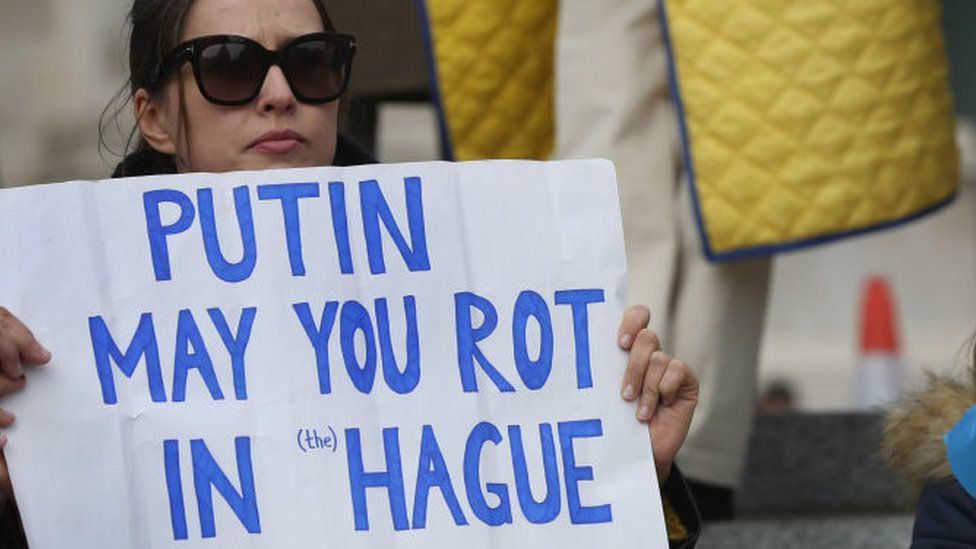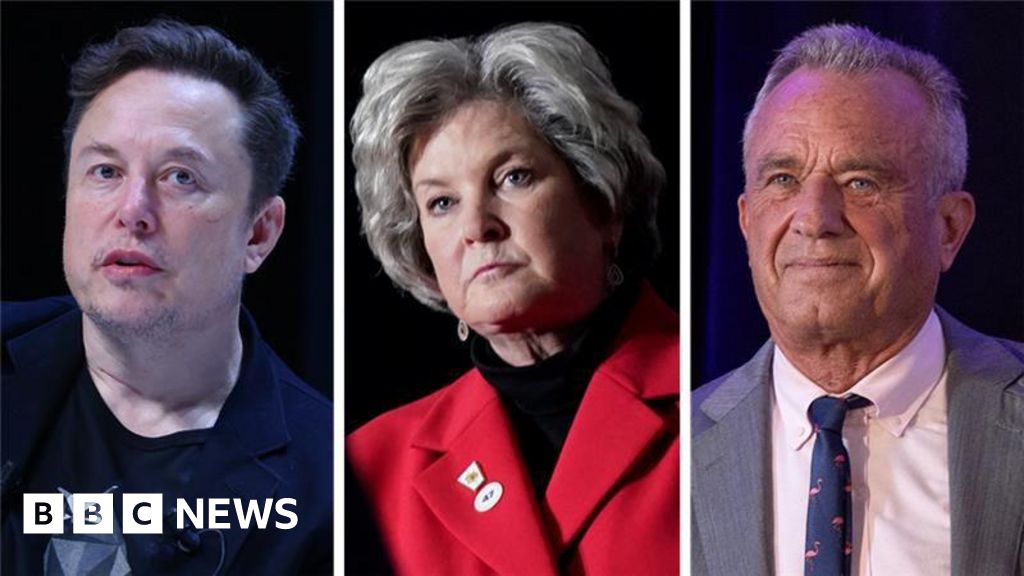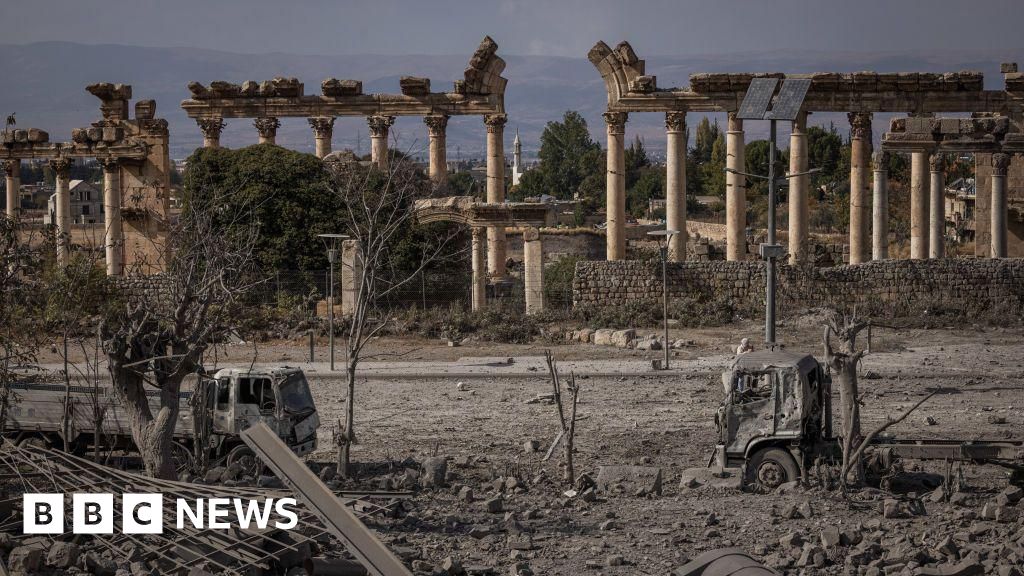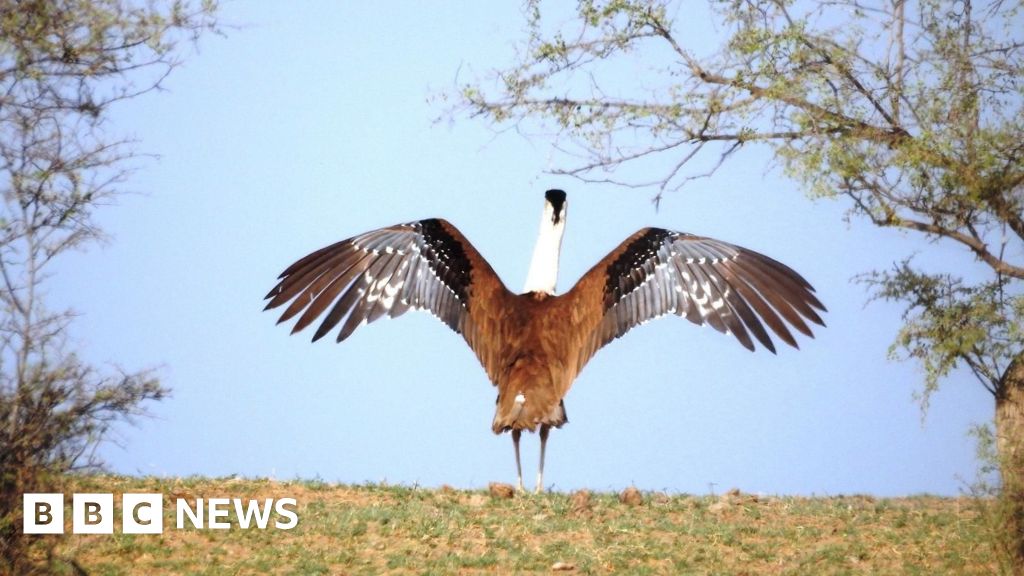ARTICLE AD BOX
 Image source, Getty Images
Image source, Getty Images
But how likely is that really?
By Robert Plummer
BBC News
Although the International Criminal Court (ICC) in the Hague has issued a warrant for President Vladimir Putin's arrest, that is no more than the first step in a very long process.
The United Nations clearly believes there is sufficient evidence to accuse the Russian leader of war crimes in Ukraine.
However. the practical and logistical problems in pursuing such a case are immense.
This is what the process of bringing Mr Putin to justice could look like.
Can President Putin be arrested?
At present, the Russian leader enjoys unchallenged power in his native land, so there is no prospect of the Kremlin handing him over to the ICC.
As long as he stays put in Russia, he faces no risk of being arrested.
Mr Putin could be detained if he leaves the country. But, given the fact that his freedom of movement is already severely limited by international sanctions against him, he is unlikely to show up in a country that would want to put him on trial.
WATCH: Can Vladimir Putin actually be arrested?
Since Russian troops invaded Ukraine in February 2022, he has visited just eight countries. Seven of those would be considered by him to be part of Russia's "near abroad": that is, they were constituent parts of the Soviet Union before it collapsed at the end of 1991.
His only recent destination that does not fall into this category is Iran, which he visited in July last year to meet the theocracy's Supreme Leader, Ali Khamenei.
Since Iran has helped the Russian war effort by supplying drones and other military hardware, any repeat visit to Tehran would be unlikely to place Mr Putin in any jeopardy.
Will Putin actually face trial?
There are at least two big obstacles to that. Firstly, Russia does not recognise the jurisdiction of the ICC.
The court was established in 2002 by a treaty known as the Rome Statute.
This statute lays down that it is the duty of every state to exercise its own criminal jurisdiction over those responsible for international crimes. The ICC can only intervene where a state is unable or unwilling to carry out the investigation and prosecute perpetrators.
In all, 123 states have agreed to abide by it, but there are some significant exceptions, including Russia.
Some countries, including Ukraine, have signed the treaty, but not ratified it. You can see a full list of countries that are party to the Rome Statute here.
So you can see that the legal position is already getting shaky.
And secondly, although it's not unknown for trials to be held without the defendant in the dock, that's not an option here. The ICC does not conduct trials in absentia, so that avenue is closed off too.
Who else has faced this kind of trial?
The idea of trying people for crimes against humanity pre-dates the existence of the ICC.
It began in 1945 after World War Two with the Nuremberg Trials, which were held to punish key members of the hierarchy in Nazi Germany for the Holocaust and other atrocities.
Those included Nazi leader Adolf Hitler's deputy Rudolf Hess, who was sentenced to life imprisonment and died by his own hand in 1987.
Of course, Mr Putin has not actually been charged with crimes against humanity, even though US Vice-President Kamala Harris has argued that he should be.
And if he were, that would pose another legal dilemma as the UN itself says, "crimes against humanity have not yet been codified in a dedicated treaty of international law, unlike genocide and war crimes, although there are efforts to do so."
Other bespoke bodies have sought to convict those accused of war crimes. That includes the International Criminal Tribunal for the former Yugoslavia, a UN organisation that existed from 1993 to 2017.
During that time, it convicted and sentenced 90 people. But arguably the most notorious of those indicted, former Yugoslav President Slobodan Milosevic, died of a heart attack in 2006 while in detention.
As for the ICC itself, it has so far indicted 40 individuals apart from Mr Putin, all from African countries. Of those, 17 people have been detained at the Hague, 10 have been convicted of crimes and four have been acquitted.
What does this mean for the war in Ukraine?
The arrest warrant is being seen as a signal from the international community that what is taking place in Ukraine is against international law.
The court says the reason it is going public with these warrants is that these crimes are continuing. In doing so, it is trying to deter further crimes taking place.
But, the main reaction from Russia so far has been to dismiss the warrants as meaningless.
In fact, the Kremlin denies its forces have committed any atrocities in Ukraine, and Mr Putin's spokesman called the ICC's decision "outrageous and unacceptable".
Faced with such defiance, it seems unlikely that the ICC's actions will have any impact on Russia's war in Ukraine - and Mr Putin's "special military operation" will continue to grind mercilessly on.

 1 year ago
18
1 year ago
18








 English (US)
English (US)